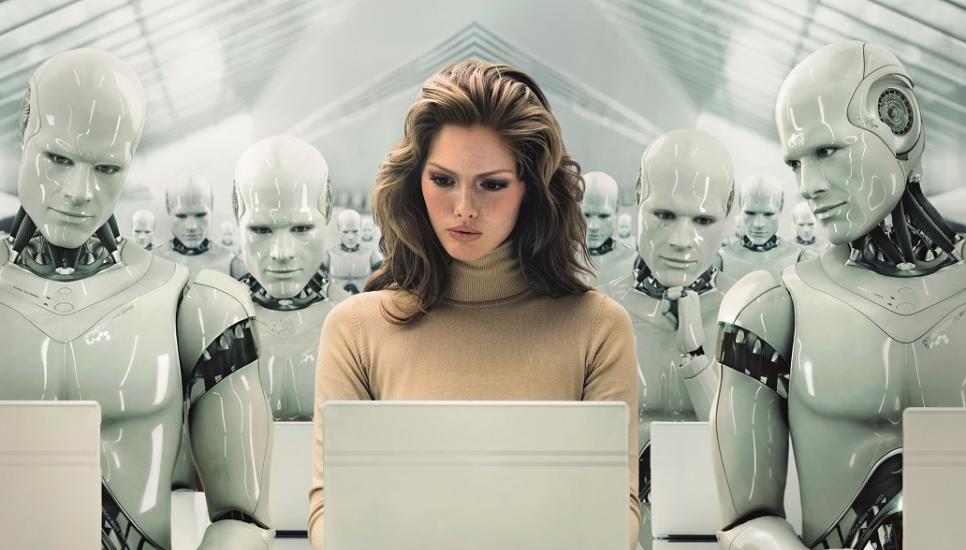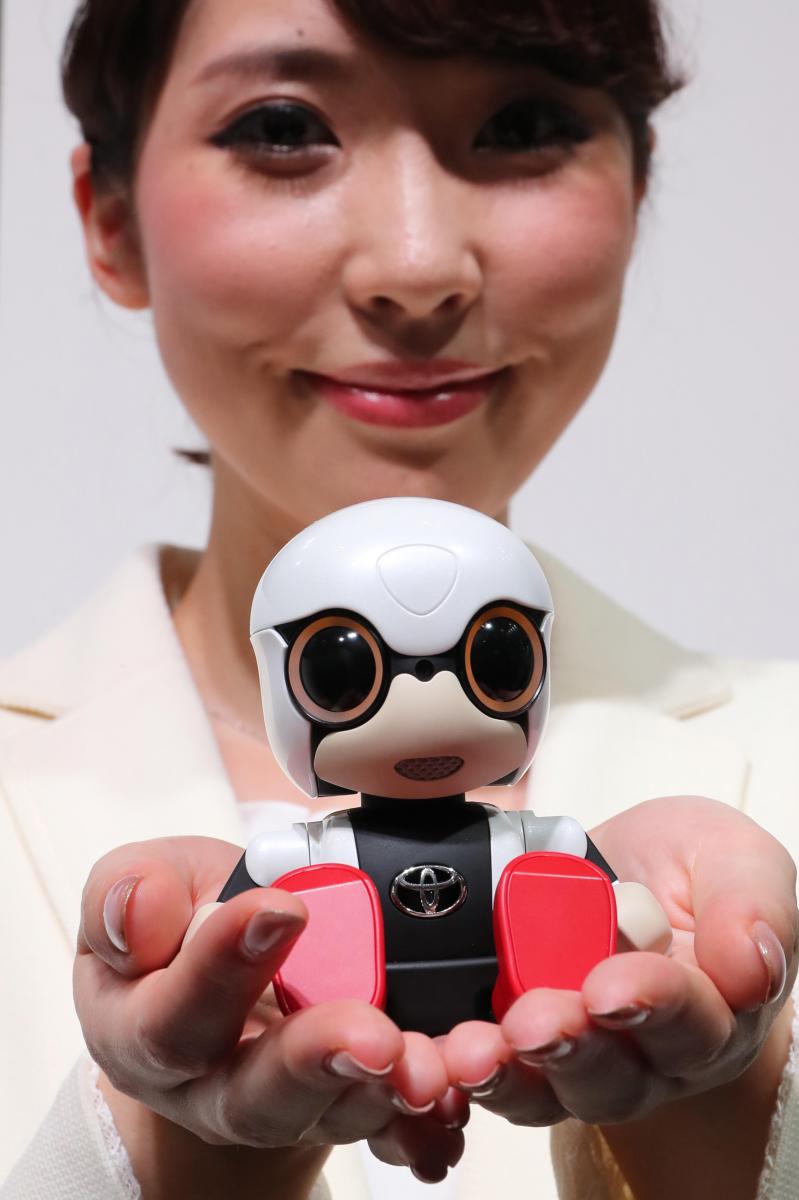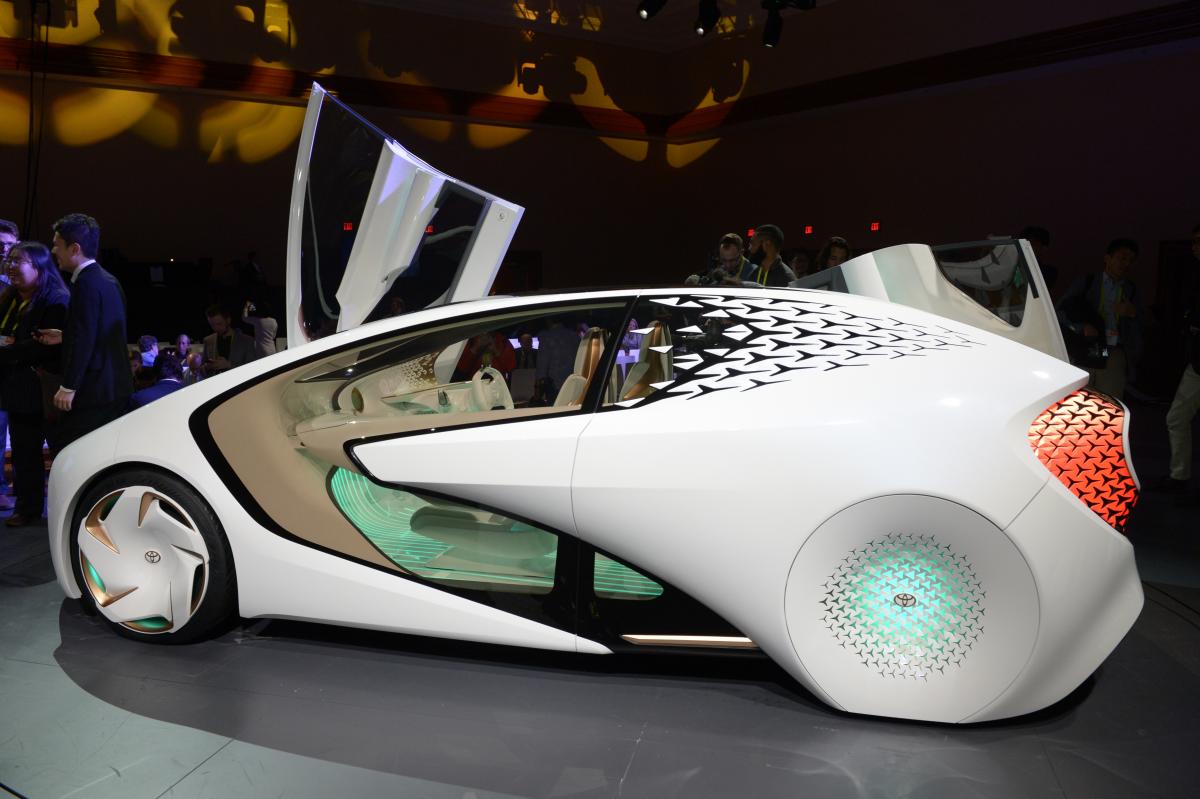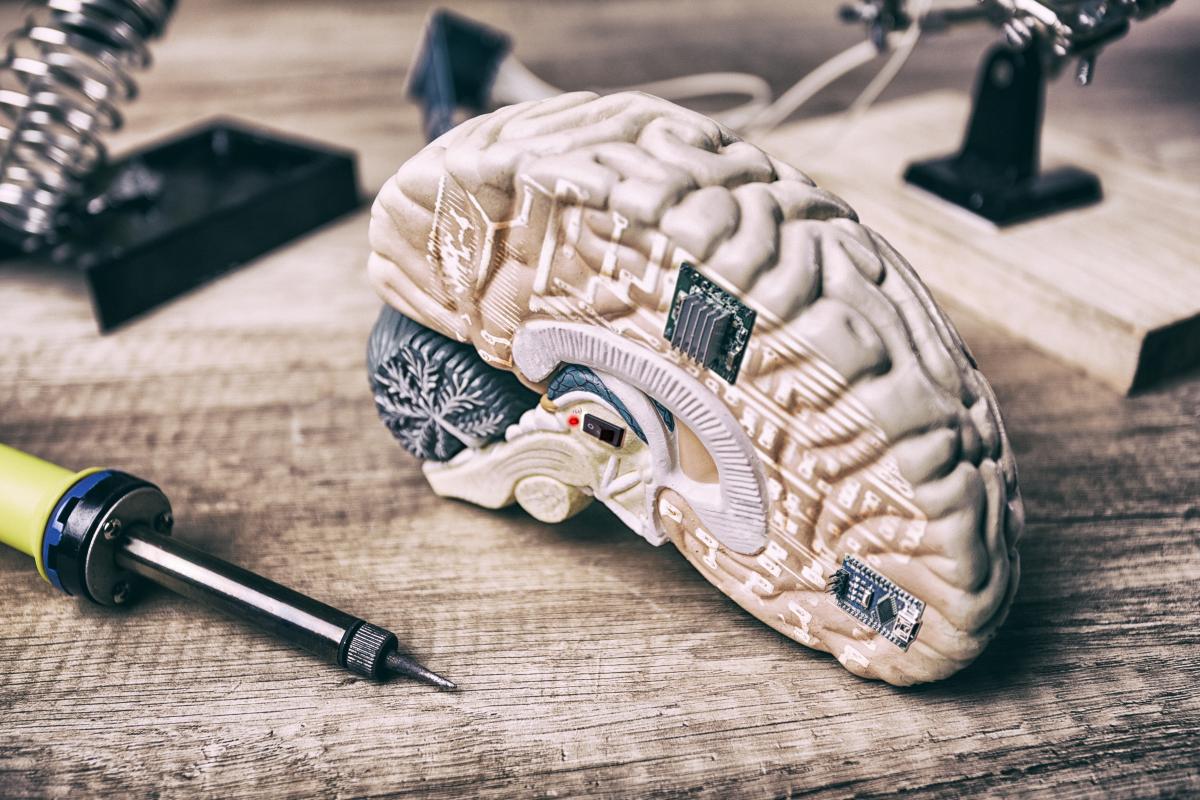Rise of the Robots: From big data to artificial intelligence

Worldwide spending on artificial intelligence and big data will reach the tens of billions by 2025. Michael Finnigan finds out what family-run operations need to know about the rise of the robots.
The county of Wiltshire in the United Kingdom might seem like an unlikely setting for one of the world's most advanced artificial intelligence (AI) laboratories. It is best-known for its Neolithic monuments and iconic stone circles, most famously Stonehenge, but beneath its prehistoric landscape the future is unfolding.
At family-run technology design firm Dyson, a team of engineers are using artificial intelligence to get a leg up on the competition. Their latest vacuum cleaner, for example, uses AI to identify high-dirt areas and then adapts its behaviour for a more intensive clean. It is the future for the majority of products, according to its eponymous founder, and AI is already responsible for a significant proportion of the second-generation company's £1.74 billion ($2.2 billion) 2015 revenue.

"Almost every product can benefit from artificial intelligence—lighting, purification, cleaning. Everything that you see in a room needs artificial intelligence," Sir James Dyson said at the launch of a $412 million research facility in Singapore in 2017. “My view is that you don't want to be holding a mobile phone and controlling devices through an app. My dream is much rather that everything is automatic, and sets itself to your preference.”
 Its technological advancements such as those described by Dyson that have some believing we are currently living through the fourth industrial revolution. Burgeoning areas such as robotics, the Internet of Things, autonomous vehicles, 3D printing, and nanotechnology in particular are changing the way we live and also the way we conduct business.
Its technological advancements such as those described by Dyson that have some believing we are currently living through the fourth industrial revolution. Burgeoning areas such as robotics, the Internet of Things, autonomous vehicles, 3D printing, and nanotechnology in particular are changing the way we live and also the way we conduct business.
So-called big data—a term used to describe extremely large data sets and the patterns and trends revealed through its analysis—is particularly instrumental in the changing business landscape. It's not difficult to see why: by 2020, it is estimated that there will be more than 50 billion instruments connected to the internet, according to a recent report by American tech conglomerate Cisco. Each of which have the potential capability of providing data on user interaction. The end result is aggregated data that can reveal new ways in which businesses can conduct their operations to maximise sales and efficiency.
 Fabian Westerheide, chief executive of family-owned venture capital firm Asgard, and self-styled digital entrepreneur with a passion for AI and big data, says the potential applications of these areas are almost limitless. “For the purpose of this conversation, and to make things easier, I am using the term AI to describe both big data and artificial intelligence,” the entrepreneur clarifies. “You see, big data is the basis for artificial intelligence as analytics and prediction are the primary functions of AI.”
Fabian Westerheide, chief executive of family-owned venture capital firm Asgard, and self-styled digital entrepreneur with a passion for AI and big data, says the potential applications of these areas are almost limitless. “For the purpose of this conversation, and to make things easier, I am using the term AI to describe both big data and artificial intelligence,” the entrepreneur clarifies. “You see, big data is the basis for artificial intelligence as analytics and prediction are the primary functions of AI.”
He continues: “Take a company like Louis Vuitton, the French fashion house. With AI they could identify trends before they manifest, personalise orders to individual customers, and even create personal pricing systems so that people pay only what they can afford. AI can even be used to create personalised marketing strategies that are more likely to convert to sales.”
In other words, family businesses can use artificial intelligence to get a clearer picture of their customers and markets—what makes them tick, what they buy, and how the market might change.
While big data and artificial intelligence is widely used in businesses today, the technology remains in its infancy, yet many early adopters have already used the systems to gain a significant competitive edge. Online retail giant Amazon, for example, has used machine learning to provide some of the most targeted advertising campaigns on the web as well as to provide better customer service. It may be part of the reason Amazon is today worth more than twice the market value of family-owned competitor Wal-Mart.
Singing the praises of AI is all well and good but it means little without a practical explanation of how it might benefit families. To explain how families might exploit the technology to gain a competitive edge, Westerheide cites family-owned Warsteiner Gruppe, Germany's largest privately owned brewery, and Sennheiser, the German audio company, as examples.
“In the case of Sennheiser or Warsteiner Gruppe—two business-to-business enterprises—AI can be used to automate production, measure output and input, and is perfect for any KPI-driven units or tasks,” the entrepreneur explains. “Obviously there is potential for AI to be used in the bottling plants of Warsteiner Gruppe, but also in transportation. Last October, for example, Uber had one of its self-driving trucks transport a crate of Budweiser (a beer brand owned by family-controlled AB InBev) almost 200 kilometres down the interstate from Fort Collins to Colorado Springs.”
This is where AI really shines, according to Westerheide, who explains that the technology is most effective when it is optimised for one goal. He cautions that AI is not as useful for soft processes, such as networking, relationships, team harmony, customer satisfaction, or creativity, which is where humans retain their value.
“Ultimately AI can be used to automate every process: scanning invoices, checking if they are correct, adding them to the company's database, and even wiring money,” Westerheide continues. “AI can automate 80% of all paperwork within a company. The other 20%, the more complex cases, can be left for humans.”
Despite the growing importance of AI, it is not immediately clear to business leaders how prevalent the systems have become. For the most part, artificial intelligence is hidden in computer processes, and is therefore virtually unrecognisable to the average user. The knock-on effect is that those in the position to exact change are less likely to invest in the tech.
 A further issue is that some of the world's largest companies are hoarding all of the world's AI talent: In 2013, Google acquired AI research start-up DNNresearch and its pioneering expert, University of Toronto professor Geoff Hinton. A year later, the search engine acquired DeepMind, a pioneering start-up that made headlines in 2016 for creating the first machine intelligence to beat a human at abstract strategy board game GO. The overall effect is that the talent pool is diminished and large family businesses are struggling to find the proper assistance.
A further issue is that some of the world's largest companies are hoarding all of the world's AI talent: In 2013, Google acquired AI research start-up DNNresearch and its pioneering expert, University of Toronto professor Geoff Hinton. A year later, the search engine acquired DeepMind, a pioneering start-up that made headlines in 2016 for creating the first machine intelligence to beat a human at abstract strategy board game GO. The overall effect is that the talent pool is diminished and large family businesses are struggling to find the proper assistance.
Even with the lack of talent, family businesses are doing whatever it takes to demonstrate that they are active in the sector, such as Japanese auto maker Toyota Motor Corp—owned by the Toyoda family—which recently released a $400 robot equipped with artificial intelligence. The 10-centimetre tall robot, called Kirobo Mini, will be sold in Japan and is claimed to have the intelligence of a five-year-old. It can learn phrases and recognise facial expressions with a built-in camera and sensors. The move may be an attempt to leverage interest in artificial intelligence as a growth sector in order to counteract their diminishing market share.
It is not the first time Toyota has sought to increase its ties to artificial intelligence: in 2016, alongside family-owned BMW, the carmakers signed a strategic agreement with Silicon Valley start-up Nauto, which uses cameras and AI systems in cars to understand driver behaviour. Nauto chief executive Stefan Heck told Reuters that the carmakers would use the technology in their test vehicles and use the captured data to develop their autonomous vehicle strategies in future.
At present it is not just large corporations driving the AI sector: last year, both the UK and US outlined their strategy for promoting AI research and development in their respective territories. The White House stressed the importance of AI augmenting humanity rather than replacing it and recommended specific standards to be held across the automotive, aviation, and finance industries, while the UK allocated a £270 million ($337 million) investment fund for “disruptive technologies that have the potential to transform the UK economy”.
 Mark Skilton, professor of practice in the information systems & management group at Warwick Business School, is the author Building a Digital Enterprise. He says post-Brexit UK has responded to the urgent need to invest in critical national infrastructure, new skills, and cultivate world-class leaders to respond to this huge digital shift. In other words, the UK has significant faith that AI will help it thrive in its increasingly isolated future.
Mark Skilton, professor of practice in the information systems & management group at Warwick Business School, is the author Building a Digital Enterprise. He says post-Brexit UK has responded to the urgent need to invest in critical national infrastructure, new skills, and cultivate world-class leaders to respond to this huge digital shift. In other words, the UK has significant faith that AI will help it thrive in its increasingly isolated future.
"The UK budget earlier this year was a step in the right direction as it highlights robotics and AI as vital technologies to compete in an automated world market,” Skilton explains. “Studies by the Organisation for Economic Co-operation and Development predict that machine intelligence will destroy jobs through automation, but it is the nations that own this technology and can build new AI-driven economies that will thrive in the fourth industrial revolution.”
Skilton refers to a darker side of AI: the theory that machine intelligence will destroy more jobs than it creates. It is a theory with legs—new technology has upended industries for millennia. Moreover, when you consider that the majority of large family businesses are labour intensive, if 80% of those jobs are due for automation, how are families going to retrain their staff? Or will we see mass layoffs? We can already see a vision of the future in some of today's industries. We're already seeing factory line workers replaced by advanced robotics, with some AI functionality, while it is likely that the entire taxi industry will be upended by AI's golden child—the self-driving car.
It is a problem being considered by the Future of Life Institute (FLI) – a think tank backed by academics and industrialists including Stephen Hawking, Tesla founder Elon Musk, and Skype founder Jaan Tallinn. When abbreviated, FLI'smission is “to safeguard life and developing optimistic visions of the future”.
Commenting in a FLI article, Dan Weld, a professor of computer science and engineering and entrepreneurial faculty fellowat the University of Washington agrees AI's impending potential is to increase productivity to the point where many people may lose their jobs.
“As a result, AI is likely to dramatically increase income disparity, perhaps more so than other technologies that have come about recently. If a significant percentage of the populace loses employment, that's going to create severe problems, right? We need to be thinking about ways to cope with these issues, very seriously and soon.”
For better or for worse, many countries are doubling down on the technology. China, for instance, publicly illustrated the importance of AI earlier this year when Beijing gave the green light for the creation of its first national laboratory for deep learning. In a move that could help the country capitalise on the technology, which it calls the 'holy grain of the digital era' in promotional materials for the lab, China is beginning to support the many local family businesses that are already capitalising on the technology.
 David Chang, chief executive of Shanghai-based ShouShan Family Wealth Advisors, says the new lab will help Chinese researchers, companies and universities access the most advanced AI technologies in China, adding that the technology needs to be unified under one system.
David Chang, chief executive of Shanghai-based ShouShan Family Wealth Advisors, says the new lab will help Chinese researchers, companies and universities access the most advanced AI technologies in China, adding that the technology needs to be unified under one system.
“You really need to look at AI (artificial intelligence or augmented intelligence) from two perspectives in China—old economy vs new economy,” said Chang. “The new economy private sector family business, like Jack Ma of Alibaba, Robin Li of Baidu, or Pony Ma of Tencent, are all actively involved in AI research and development. The old economy folks, those in manufacturing, construction, trade and the like, are actively looking into AI to upgrade or transform their businesses. Western educated second-generation family members are also pushing their parents' generation into AI related technologies.”
Chang, who has a lengthy history advising family offices, says AI is currently a significant part of high-tech initiatives that China's government is focusing on, supporting, and funding. He believes AI will be a “ubiquitous for family businesses in China” and that the technology “will be key to helping China transit into the next secular phase of more sustainable growth”.
A more sinister explanation for China's drive towards artificial intelligence may stem from perceived importance of artificial intelligence for military robots, rocket engines, ship sensors and military jets. A New York Times story from March 2017 found that China is investing billions in US start-ups that have cutting-edge products that could have military applications.
While the investment appetite for AI firms increases in China, many family offices in the West are also wising up to the potential returns associated with the technology. The technology itself can help family offices spot market trends and risks hours before they occur by scanning the behaviour of buyers and sellers. More importantly, pundits believe that in future AI platforms will do more than just measure 1s and 0s and take on a more common sense approach which one would more typically associate with analysts.
With all that in mind, how will artificial intelligence and big data change the family business landscape? The general consensus is that robots will play an increasingly significant role in business, from investment to logistics. And while it may not be the post-apocalyptic future envisioned in a famous science fiction thriller, a betting man would put his money on the rise of the robots. How this affects the vast workforces employed by family business could be AI's greatest dilemma.






